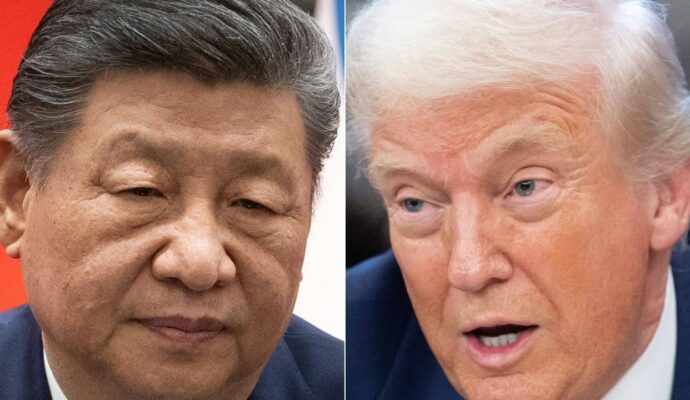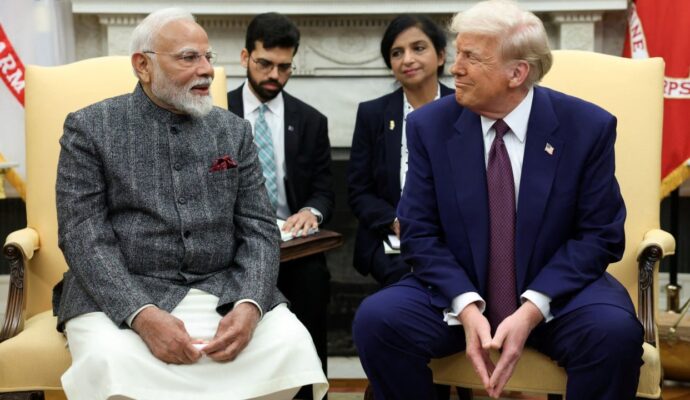Bradfield in Sydney’s affluent north shore is shaping up as the scene of one of the federal election’s most fiercely fought teal v Liberal battles.
Nicolette Boele, a community independent, is taking on the star Liberal candidate Gisele Kapterian.
It’s Boele’s second shot at winning the seat, having run against the Liberal MP, Paul Fletcher – who is now retiring – and reducing his margin to just 4.2%.
In a contest this tight every vote matters.
That’s why the decision by another independent, Andy Yin, a former Liberal party insider, to preference Boele ahead of Kapterian could be crucial.
One in three Bradfield voters are of Chinese heritage and Yin, 27, who describes himself as a “proud local Chinese Australian, born to immigrant parents”, is working hard to reach them.
The Liberals, having identified the loss of Chinese votes as a key reason for the Coalition’s 2022 defeat, are campaigning hard on the ground.
Yin knows their strategy. He was a mastermind of their Chinese social media campaigns for the 2019 election and opposing the Indigenous voice to parliament. Now he’s using that knowledge against them.
Strategies include sharing celebrity endorsement videos on the Chinese-language social media platforms WeChat and RedNote, buying ad banners on popular WeChat accounts and being interviewed by Chinese influencers.
“We’re very active on WeChat,” Yin says. “WeChat has been a superb platform to me.”
Following the news that the Liberal party had reached a preference deal with One Nation nationally, Yin released a video on WeChat urging people not to vote for Peter Dutton, mentioning Pauline Hanson’s history of opposing Asian migration in the 1990s.
Both Kapterian and Boele have also made efforts to reach out to the community of Chinese Australian voters, with Kapterian appearing in ads on WeChat and Boele promoting her policies on a Chinese-language website.
In 2019 Yin looked after several Liberal candidates’ WeChat accounts. Despite his efforts to win Chinese votes for the Liberals and donations to the party, Yin found his loyalty was frequently questioned in the party room.
“There are people in there who believe that you still pose a threat to national security,” he says.
after newsletter promotion
Yin says some inside the party also questioned the source of his donation and family wealth. He says his family work in small businesses, while they also mobilised their friends to donate to the party.
“If you are so concerned about these donations, then why are you taking them, why don’t you just refund them back?
“This is very ironic, right?”
Yin also faces the question that Chinese Australian candidates are frequently asked: his stance on China. In Bradfield, 3% of residents were born in Taiwan, Hong Kong or Macau. Draconian national security laws in Hong Kong and China’s more aggressive posture against Taiwan have opened up divisions within the community.
The New South Wales Hong Kong community held a community forum for Bradfield residents to meet the candidates. Boele, Kapterian and the Greens candidate, Harjit Singh, attended alongside Yin.
Asked if he would help Bradfield’s Hong Kong-born voters voice their concerns about human rights in Hong Kong, Yin says his focus would be on local issues – while prioritising Australia’s interest in foreign affairs.
“We need to take a very diplomatic approach and an approach that will allow Australia to maneuver around this very difficult global geopolitical environment,” Yin says, and “to ensure that everyday Australians in this country are taken care of.”


